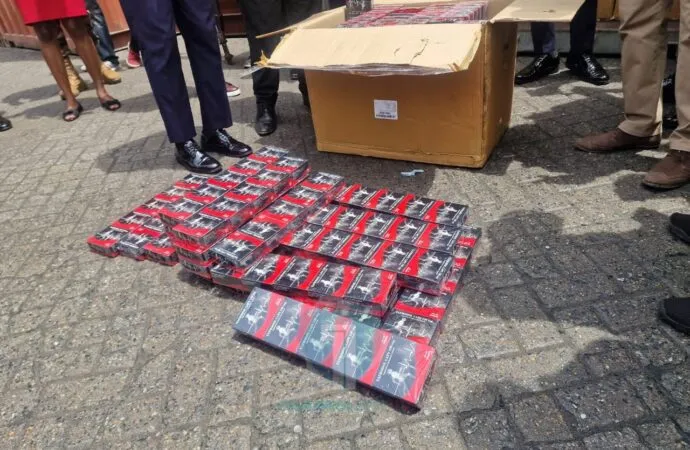Ghana is on the brink of a devastating opioid crisis, fueled by systemic failures in drug regulation and border control, according to an impending investigative report by IMANI Center for Policy and Education. The report, based on months of rigorous research employing artificial intelligence, field intelligence, and insider accounts, promises to expose the intricate mechanisms by which dangerous opioids are flooding the country, transforming Ghana into a major trafficking hub for West Africa. IMANI’s investigation reveals a deeply troubling reality – highly potent opioids, including tafrodol, tapentadol, and high-dosage tramadol, are not being smuggled into the country but rather imported legally and cleared through official ports with alarming ease. This systematic breakdown in regulatory oversight has created an open channel for the influx of these dangerous drugs, often marketed on the streets as “Tramo” and “Red,” posing severe neurological risks, particularly to Ghana’s youth.
The scale of the crisis extends beyond Ghana’s borders. IMANI’s findings indicate that the country’s lax import controls have made it an attractive transit point for opioid trafficking throughout West Africa. Individuals and groups from neighboring countries, including Nigeria, Niger, and Burkina Faso, are exploiting Ghana’s vulnerabilities to easily access and distribute these harmful substances. This regional dimension amplifies the urgency of addressing the crisis, as Ghana’s porous borders contribute to the wider proliferation of opioids in the region. The IMANI report is expected to detail the specific mechanisms involved in this transnational trafficking network and highlight the critical need for regional cooperation to combat the flow of these drugs.
IMANI’s investigation not only exposes the ease with which opioids are entering Ghana but also points to a deliberate compromise within the system. The seemingly effortless import process suggests a level of complicity or negligence within regulatory bodies and border control agencies. This raises serious questions about the integrity of Ghana’s drug control mechanisms and underscores the need for thorough investigations into potential corruption and regulatory failures. The report’s findings are anticipated to shed light on the actors involved in facilitating this illicit trade and the extent to which institutional weaknesses are being exploited.
The impending report is not the first warning sign. Bright Simons, Vice President of IMANI, has already published preliminary findings highlighting the alarming trend of opioid abuse in Ghana and the systemic failures contributing to its escalation. The forthcoming report, however, promises to provide a more comprehensive and in-depth analysis, building upon Simons’ work and offering a detailed account of the crisis based on extensive data and insider information. This comprehensive overview is expected to serve as a critical resource for policymakers, health professionals, and civil society organizations in developing effective strategies to combat the crisis.
IMANI’s urgent call to action underscores the gravity of the situation. The organization emphasizes the need to treat the opioid crisis as a national emergency, recognizing the profound threat it poses to Ghana’s future, particularly to the well-being of its youth. The widespread availability and abuse of these highly addictive substances have the potential to devastate communities, exacerbate health issues, and undermine social stability. IMANI stresses the importance of swift and decisive action to stem the flow of opioids into the country, strengthen regulatory oversight, and implement effective harm reduction strategies.
The IMANI report promises to be a watershed moment in Ghana’s fight against the opioid crisis. By exposing the inner workings of this complex issue, the report aims to galvanize a national response and compel policymakers to implement meaningful reforms. The findings are expected to spark critical discussions about drug policy, border security, and public health, prompting a much-needed overhaul of existing systems. The report’s release marks a critical juncture, demanding immediate and concerted action from all stakeholders to protect Ghana’s communities and safeguard the future of its youth.














